Dictatorship of Realism?
Devra Torres | Feb 7, 2013 | 6 cmts

It’s hard to write dispassionately about Michael Voris, but I’ll try.
In fact, it’s not about him, but about something he says in this clip on the trouble with democracy. He believes that only ”virtuous people” (which equals “faithful Catholics”) should be allowed to vote, but that a “benevolent dictatorship” would be an improvement on any kind of democracy. (If you suspect I’m misquoting or taking him out of context, watch the clip and I think you’ll agree I’m not.)
It doesn’t take much imagination to foresee the verification and enforcement glitches that might crop up in establishing who’s virtuous and who’s not, whose faithfulness was acceptable last election year but seems to be slipping,

or who’s verifiably vicious this year but ought to be declared salvageable. I don’t know how you could manage it without a lot of reliable spies, hidden cameras,

and of course some sort of delicate apparatus or technique for the reading of hearts.
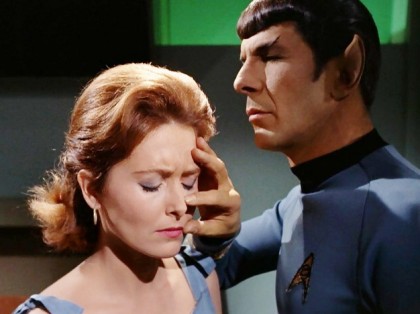
But all this is beside the point, for both of us: he thinks democracy is a misguided idea, anyway, and I want to address not whether a benevolent dictatorship is a promising plan for us, but his claim that this is the way God runs the universe.
He says we need
…a Catholic monarch, who protects his people from themselves and bestows on them what they need—not necessarily what they want. Who protects their rights as human beings….A noble, Catholic monarch advances the common good, while loving and caring for his people. If you think about it, this is exactly how the universe is governed, isn’t it?
This was startling, since I am continually amazed at just how much freedom God allows His children. I would never think of entrusting even my most senior child

with such life- and cosmos-altering powers. Certainly most of us, if put in charge of the universe, would tend towards dictatorship (maybe benevolent, maybe not).
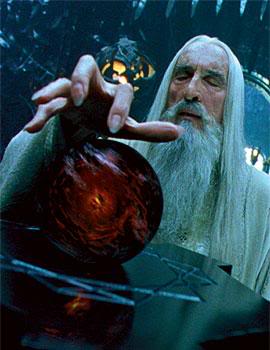
But I don’t think that’s the way He runs things. Instead, He wants us to aspire, in St. Paul's words, to the “glorious freedom of the children of God.”
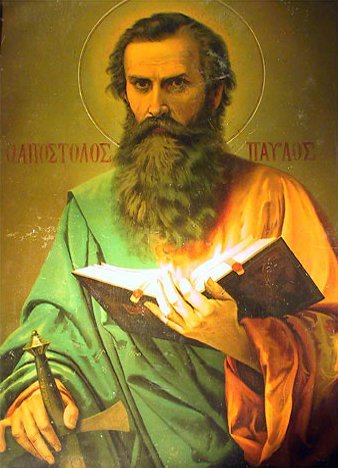
So why would anyone believe the inventor of free will to be any kind of dictator? Isn’t He the one who insists on giving us enough rope to hang ourselves, over and over again? The one who gave us the freedom to love and choose the good, or to hate and do enormous evil and harm to ourselves, our fellow human beings, and even our descendants?
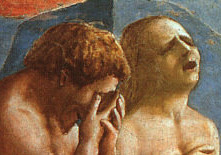
Then I thought: maybe it’s because of the existence of Hell. Maybe God might seem like a dictator who gives us the temporary freedom to choose evil, but sees to it that eventually we get what’s coming to us. So ultimately we have no choice in the matter.
But that’s not right, either: there’s a real possibility of going to Hell, not because the universe is a dictatorship, but just the opposite—because in the end, we get what we ultimately choose.
As C. S. Lewis puts it:
There are two kinds of people: those who say to God, Thy will be done, and those to whom God says, All right, then, have it your way.
So here’s my theory:
Like Pope Benedict, Voris appreciates the evils of the “dictatorship of relativism”—the tyranny of indifferentism, the flattening down of all ideas and belief systems to the same dreary level of meaninglessness, none of them any more good or true of beautiful that another.
Maybe he reasons that the opposite of the malevolent dictatorship of relativism is the benevolent dictatorship of realism. He doesn’t identify the “dictatorship” aspect as a problem.
But as Pope Benedict has pointed out,
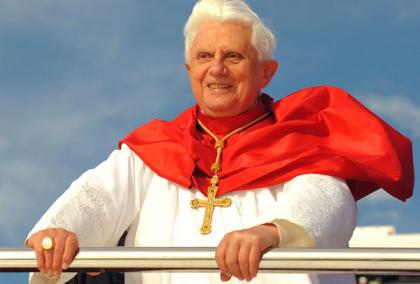
[T]he Church does not impose but freely proposes the Catholic faith, well aware that conversion is the mysterious fruit of the action of the Holy Spirit. Faith is a gift and a work of God…. A person may open to the faith after mature and responsible reflection, and must be able freely to realize that intimate aspiration. This benefits not only the individual, but all society, because the faithful observance of divine precepts helps to build a more just and united form of coexistence.
Of course we don’t put truth and falsity or good and evil to the vote. They’re not determined by consensus. But the world is full of people who resent God and His Church because they feel imposed upon, not proposed to. Within the household of faith, though, we ought to be clear on the subject.

Comments (6)
TowerofBabble
Feb 7, 2013 9:54pm
What a great C.S. Lewis quote! Although saying that is redundant, really--his writings abound with highly quotable tidbits of wisdom (she wrote in the wordiest manner possible).
C.S. Lewis is the gift that keeps on giving, so thank you for sharing.
Jules van Schaijik
Feb 7, 2013 10:39pm
Katie has been telling me about this guy. But this is the first time I have seen and heard him for myself. Unbelievable. How is it possible that he even has an audience?
P.S. I love the pictures you chose for this post, especially the one of the wizzard (whose name I should know).
Devra Torres
Feb 7, 2013 11:36pm
Tower of Babble, I'm highly flattered. You can thank Ima, the one who hooked me on him.
Jules, it's Saruman the White, of course!
Sapperdepitjes
Feb 8, 2013 7:09am
An ancien régime monarchy by the grace of God and a benevolent dictatorship are two different things altogether.
Patrick Dunn
Feb 8, 2013 8:56am
Several years ago, a Catholic monk from Chicago offered a critique of this kind of Catholic triumphalism. I think he was right:
http://chicagomonk.org/2007/11/03/humility-step-six-willing-to-be-weak/
Devra Torres
Feb 8, 2013 1:58pm
Patrick, that was very interesting. I think some of the "triumphalist" genre is just seeking to balance the more and more blatant and mainstream anti-Catholicism--more than claiming that the Faith's salutory effects are the main thing about it. But it's a delicate balance.
It's interesting, too, because it parallels what goes on in the individual soul as the person tries to reach genuine humility and achieve rightly ordered self-love and rightly ordered self-contempt.